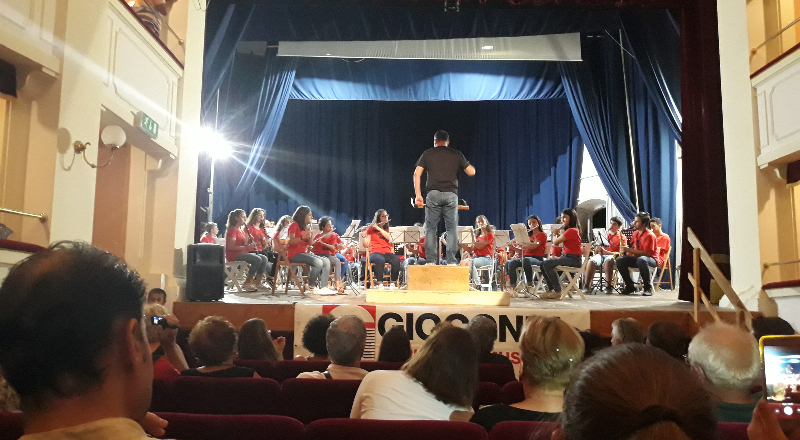
One of the many things I had to do to acquire long term residency status in Italy was to take a two-day course in Italian Civics. This is not merely required for people who are seeking citizenship but for people who want to stay in the country beyond the 90 days allowed for tourism. It was during that class that I learned something quite amazing.
In addition to the usual civil rights and aspects of democratic governance, a major “pillar” of the Italian constitution obligates people to contribute to their communities. I had never seen such a noble public objective before. Nor had it even occurred to me that it would be considered as a mandate. It applies equally to those born Italian as well as anyone else living in the country. And it makes perfect sense; a functioning democracy had both rights as well as obligations. An obligation to contribute to the larger community is, correctly, one of them.
This collective responsibility is carried out in hundreds, if not thousands, of different ways. We observe it on a daily basis, even in our small, rural hilltop town. Sometimes the manifestation is surprising.
For example, the adult daughter of a local restaurant owner has organized a multi-lingual lending library within the community center, using donations and a small grant she applied for and received. Her father uses part of his larder to provide free snacks at certain community festivals, personally handing them out from a portable, cloth-covered table on the main street.
We discovered that our auto mechanic, whose hands are perpetually brown and grimy from his work, does two amazing things. He helps people retrieve their automobiles, for free, when they break down in the countryside. Once, for us, he spent half a day going to a remote location and bringing it back. But more significantly, Gabrielle also organizes monthly community dinners held during the spring and summer. Set up on long tables in the piazza next to city hall, these dinners involve a modest charge for dishes like pizza, polenta, and sweet treats made with chestnut butter. Live music for listening and dancing follows the food.
Another resident, a charming middle-aged woman who is always stylishly dressed, has taken on the role of returning lost domestic animals to their human households. We once found a hungry, stray dog wandering a back street. We gave her a call and she showed up on our door step within minutes. In a town near us, a shop owner matches feral cats and dogs, gratis, with people who would like a pet. Her website includes photos and details. One of our own cats is the result of our responding to her weekly calls.
Another town in our area has a group called “Angeli del Bello” – literally “angels of beauty.” More than a hundred people belong to this non-profit community organization, which is similar to those in other cities around Italy. The Angels take care of maintaining and cleaning public spaces, such as parks and plazas. They go out in crews on weekends wearing orange vests and ball caps, cleaning stone work and painting over graffiti where it can’t be removed. This sense of responsibility for keeping shared “public living rooms” tidy and appealing is exemplary. Most cities do not have the budgets to do this kind of regular maintenance, so citizens step up and do it.
For our part, we have contributed to the on-going costs of a community theatre — a small, classic restored opera house, with a sloped wood stage and semi-circular box seating. We also have helped arrange for several performances by visiting musicians from the U.S. It was with no small sense of pride when the mayor acknowledged our support and asked us to stand up and take a bow before the show.

Recognition for community service is part of the equation. Youth join the city band and are rewarded with both boisterous applause and free meals of pizza afterwards. Some younger people volunteer to help the teachers of pre-school kids. They are well-known as local heroes and are given the same local status as sports team players in the U.S.
Adult organizers of events are presented with bouquets of flowers or bottles of wine. Businesses that contribute materials and money are mentioned with great fanfare. For larger contributions, announcement posters and the stage décor include a company’s logo. If the generous proprietor is present during an event, they are asked to stand up for a round of applause.
Seattle certainly has some traditions associated with community service. Neighborhood watch groups are an example. As are the many associations that pick up trash along streets. Church groups offer food banks. Neighborhood groups organize pea-patches. And some corporations contribute to taking care of social needs. But there could be a lot more done in the vein of collective responsibility.
Here, the idea of individuals contributing to the community is instilled at an early age and carries all the way through life. Every day three octogenarian women on our street sweep the cobbles and pick up bits of windblown trash. The street is always immaculate.
Discover more from Post Alley
Subscribe to get the latest posts sent to your email.

I’ve been trying to think of a way to write about the culture of “bene comune” for American readers and coming up short. There’s hardly anything about the movement in English, and Italian coverage of the phenomenon is almost all cast in a comically awful kind of Euro-Bureau-Speak. Mark has created the best intro I could imagine. Send links to everybody you know who cares about citizen control of governance.